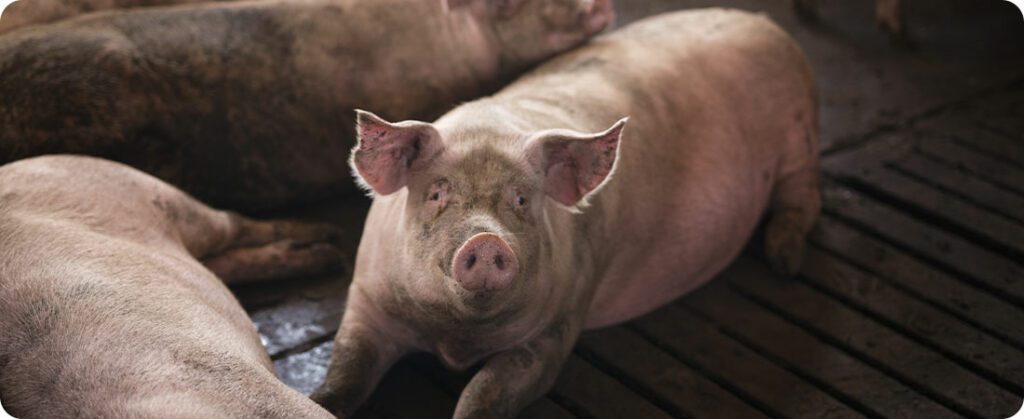
The intense rains that have hit Rio Grande do Sul since the end of April escalated into floods that hit, by 12pm (Brasília time), 364 municipalities in Rio Grande do Sul were affected, according to the state Civil Defense. In relation to the animal protein sector, in which the State plays an important role in Brazilian agribusiness, losses are still recorded.
According to information via an official note from the Brazilian Animal Protein Association (ABPA), together with its associates and in support of the Gaúcha Poultry Association (ASGAV) and the Rio Grande do Sul Pork Products Production Industry Union (SIPS), the is still being monitored.
The entity pointed out that, “with the temporary unviability of centers that represent the majority of chicken meat production and a large part of the state's pork production, there is fear that, in addition to the problems already experienced today, the population of Rio Grande do Sul will face shortages. of products until the production system resumes – which could take more than 30 days”.
“Based on ABPA surveys, ten poultry and pork production units are paralyzed or experiencing extreme difficulties in operating due to the impossibility of processing inputs or transporting employees. The state produces 11% of chicken meat production and 19.8% of national pork production, which are directed for consumption on the state's own shelves and for export”, informed the Association's note.
Crisis in agriculture in Rio Grande do Sul: Shortages and challenges amid floods
The information continues, pointing out that “with the temporary unviability of centers that represent the majority of chicken meat production and a large part of the state's pork production, there is fear that, in addition to the problems already experienced today, the population of Rio Grande do Sul will have to face product shortages until the production system resumes – which could take more than 30 days”.
Valdecir Folador, president of the Association of Pig Breeders of Rio Grande do Sul (Acsurs), explains that, in the area of pig farming, the main regions affected in Rio Grande do Sul were Serra Gaúcha, Vale do Taquari and Vale do Caí, which comprises around 25% of the State's pig production.
“About the farms, we still don’t have precise information. I know of two or three farms that had extreme situations, but there is no survey yet, because access and communication are very difficult. Yesterday, food trucks started to circulate in an incipient way, and today in a slightly better way”, he said. One of the examples was in Rodeio Bonito, in which a farm owner, upon seeing the water rising, released the animals.
The executive president of the Gaúcha Poultry Association (Asgav), states that, at the moment “we are still trying to make the flow in the regions viable. We don't have numbers yet. The focus is also on rescues. As soon as possible, we will bring the withdrawals.”
ABPA highlighted that the priority is to save lives and help those who lost everything in the floods, including sector employees. Feeding the animals in the field is also a priority. Production centers face not only structural losses, but also basic items such as water, electricity and telecommunications.”
Dairy farming
According to information from the Association of Dutch Cattle Breeders of Rio Grande do Sul (Gadolando), the floods in the State have left milk producers isolated, and there are properties that are unable to deliver product due to logistical difficulties, in addition to the lack of energy and food for animals in some locations.
“Many are flooded and isolated due to the collapse of barriers, which means no milk collection and, therefore, no supply to the industry which, in turn, no longer has packaging to fill the little product that arrives”, he notes. the president of the Rio Grande do Sul Dutch Cattle Breeders Association (Gadolando), Marcos Tang.
The director also reports that the properties are already running out of fuel and feed for the cows. “I know of properties, with a large number of cows, that are milking once a day just because they have very little fuel. They can't look for more and are running the generators with this fuel. Producers are making some journeys on foot, collecting oil in small quantities as long as possible. We have reports of a huge reduction in animal feed, as there will be a shortage of the product in some establishments”, he reinforces.
Tang highlights the importance of prioritizing human lives and recalls that the sector is facing yet another tragedy. “We hope that the rains stop and the roads reopen to allow access and arrival of food. As well as packaging for the industry, and in this way serve the consumer. It went from a flood to a general catastrophe”, he assesses.
Source: Letícia Guimarães | Notícias Agrícolas












